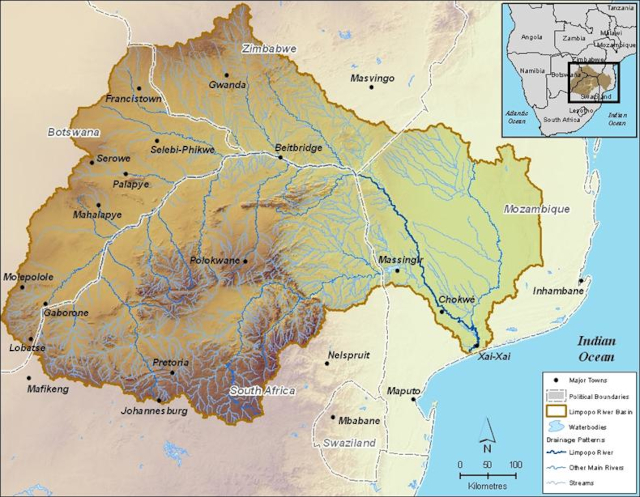The project will be launched during a meeting for Minister responsible for Water Affairs from the basin’s riparian states during which the minsters will recommit their support to deepening transboundary cooperation in the Limpopo River Basin.
During the meeting, the Ministers will sign the Amendment to the LIMCOM Agreement, which will formalize the establishment of the Council of Ministers as the LIMCOM’s main policy and decision-making body on transboundary water resources development and management issues in the Limpopo River Basin.
Article 4 of the LIMCOM Agreement signed in November 2003 did not initially include the Council of Ministers. Therefore, the formalization of the Council of Ministers as the main policy body will improve the governance structure of LIMCOM and its Secretariat.
Furthermore, it will foster closer cooperation for judicious, sustainable, and coordinated management, protection, and utilization of shared watercourses in line with the 2000 Revised SADC Protocol on Shared Watercourses.
Another important activity for the Ministers will be the approval of various LIMCOM Governance and Policy documents that provide the necessary guidance to corporate operational governance of the LIMCOM Secretariat with regard to administration and financial management, as well as human resources policy management and procurement and assets management.
The UNDP-GEF Limpopo project aims to uplift the living standards of the basin’s population and conserve the basin’s resources and ecosystem services,” through several interventions to be executed at the community level.
The United Nations Development Programme (UNDP) in South Africa, together with the Global Water Partnership-Southern Africa (GWPSA), is supporting the project, funded by the Global Environment Facility (GEF). As the GEF implementing entity, the UNDP provides overall oversight of the project with GWPSA being the executing agency, while the Limpopo Watercourse Commission (LIMCOM) is the focal custodian of the project implementation.
One of the key highlights of the project is the formulation of the Limpopo Transboundary Diagnostic Analysis (TDA), which will see Member States agree on a set of transboundary priorities for the basin to guide both transboundary and national investments in the future, through a Strategic Action Plan (SAP).
The meeting for Limpopo member states’ water ministers be preceded by the meeting of the LIMCOM Legal and Technical Task Teams on 12 March 2024 and a Commissioners Meeting on 13 March 2024.
The Limpopo River Basin (LRB) is one of the major river basins in southern Africa, and it is shared by four countries namely Botswana, Mozambique, South Africa and Zimbabwe. The catchment area of the LRB is estimated at 412,000 km² and the basin has a population of over 18 million people. The river flows north from South Africa, where it creates the border between South Africa and Botswana and then the border between South Africa and Zimbabwe, before crossing into Mozambique and draining into the Indian Ocean. The basin supports diverse socio-economic activities in the four Riparian States including agro-industry, large-scale irrigation, rain-fed subsistence agriculture, mining, eco-tourism, and hosts some of the world’s foremost protected areas and biodiversity hotspots.

Photo credit - Map of the Limpopo River Basin: Limpopo Commission
